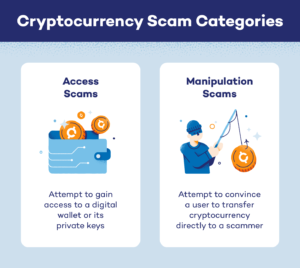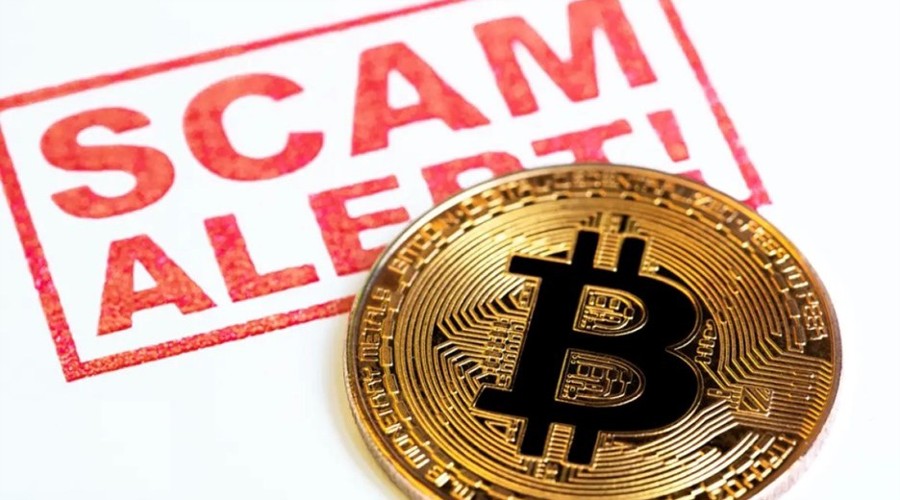Cryptocurrency Scams : A Comprehensive Guide to Protecting Your Investments
The world of cryptocurrencies, including Bitcoin and Ethereum, has seen unprecedented growth in recent years. Unfortunately, this surge in popularity has also attracted a wave of scammers looking to exploit unsuspecting investors. This guide aims to shed light on common Cryptocurrency Scams, provide essential tips to avoid falling victim, and outline steps to take if you suspect a scam.
Understanding Common Cryptocurrency Scams
- Phishing Scams: Scammers often use phishing emails or messages to trick individuals into revealing their personal information or login credentials. They may impersonate reputable exchanges, wallets, or cryptocurrency projects.
- Ponzi Schemes: These schemes promise high returns with little risk. They rely on new investors' money to pay off existing investors, creating a pyramid-like structure that eventually collapses.
- Pump-and-Dump Schemes: Scammers manipulate the price of a cryptocurrency by artificially inflating its value through coordinated buying, then selling their holdings at a profit, causing the price to plummet.
- Fake ICOs (Initial Coin Offerings): Scammers launch fraudulent ICOs, claiming to raise funds for innovative projects. However, the funds are often misappropriated or used to create worthless tokens.
- Investment Scams: Scammers may offer investment opportunities in cryptocurrency mining or trading, promising guaranteed returns. These offers are often too good to be true and can lead to significant losses.
How to Spot a Cryptocurrency Scam
- Unrealistic Returns: Be wary of promises of guaranteed profits or extremely high returns. Legitimate investments carry inherent risks.
- Pressure to Invest: Scammers often use high-pressure tactics to persuade victims to invest quickly. Take your time and conduct thorough research.
- Lack of Transparency: Legitimate cryptocurrency projects are transparent about their operations, team members, and roadmap. Avoid investments with unclear information.
- Unknown Exchanges or Wallets: Stick to reputable exchanges and wallets with a track record of security. Avoid using platforms that are unfamiliar or have negative reviews.
Protecting Yourself from Cryptocurrency Scams
- Educate Yourself: Stay informed about the latest scams and trends in the cryptocurrency world. Follow reputable news sources and join online communities.
- Use Strong Security Measures: Protect your personal information and cryptocurrency wallets with strong passwords, two-factor authentication, and antivirus software.
- Verify Information: Before investing, verify the legitimacy of the project, team members, and any associated websites.
- Be Skeptical: If something seems too good to be true, it probably is. Avoid impulsive decisions and do your due diligence.
- Report Scams: If you believe you've been a victim of a cryptocurrency scam, report it to the appropriate authorities and online fraud reporting platforms.
Read This Article - Cryptocurrency Investing
Conclusion
Cryptocurrency scams can have devastating financial consequences. By understanding common scams, staying vigilant, and taking proactive measures, you can significantly reduce your risk of falling victim. Remember, investing in cryptocurrencies should be done with caution and after careful consideration.


